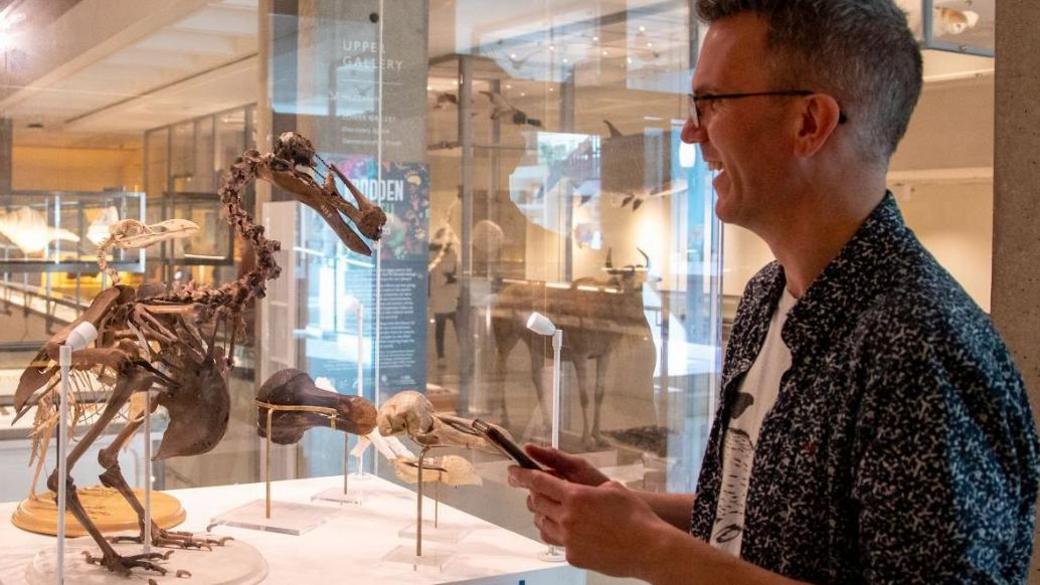It's not even Halloween, but AI is already getting spooky
AI manifests the zoombie apocalypse as the Pepper's ghost in the machine gets into the spirit of Halloween.

Much like your overly enthusiastic neighbor who excitedly busts out the cobwebs and skeletons the moment October arrives, AI is similarly getting into the spirit of Halloween early by trying to creep out as many people as possible — from cursing you with the ability to hear your pet's thoughts to briefly gaining sentience during a fabricated podcast.
AI might not be able to partake in the physical act of candy-guzzling, but when it comes to making the hairs stand up on the back of your neck, it sure is eating.
There's a Doctor Dodolittle in all of us
This week, Austin-based Personifi AI appeared to break new ground with the announcement of its Shazam pet collar. According to founder John McHale, the Shazam collar goes all Berlin Wall circa 1989 on the human-animal language barrier — granting us the Doctor Doolittle-like power to translate the talk of Man's best friend (or Man's slightly anti-social, freeloading roommate if you own a cat).
That's right, for the low-low price of just $495 (and a $195 annual subscription) you can audibly hear what your cat thinks about you from a pre-recorded selection of 8,000 lines of quippy dialog sourced from 27 different voice actors. Spoiler alert: it's probably not very pleasant.
To some, this seems like quite a pleasant experience. However, to others, there's probably something slightly sinister about spending truckloads of cash to completely re-roll the natural personality of your beloved pet with one-liners pulled straight from the editing room floor of a Pixar animated movie.
Plight of the living dead: Rise of the Zoombies
Still, it's better than the horrifying Doctor Doolittle x Pet Semetary crossover that the UK's Cambridge University Museum of Zoology is cooking up: AI-generated Zoombies.
The digital afterlife industry strikes again! Thanks to the wonderful advances of AI tech, the museum intends to grant the gift of the gab to the dead remnants of the near-indestructible cockroach, the dwindling-in-numbers red panda, and the long-since-extinct Dodo.
Sign up to receive The Snapshot, a free special dispatch from Laptop Mag, in your inbox.

Presumably, this is an experiment focusing on "How to ensure your children never sleep peacefully again," after the emotional trauma of hearing dozens of cutesy AI-generated animal voices simultaneously hallucinate and cry out in unison for their sweet release from this mortal coil.
In reality, the exhibitions are designed to offer visitors the chance to converse with these dead animals in the hopes of learning more about them.
I've only just gotten over the time-traveling effort-shaming of my 60-year-old FutureYou avatar. I don't think I'm ready for a lecture on the ecological dangers of overhunting wildlife from the skeleton that once housed my ancestor's "Ye olde" Chicken McNuggets meal.
The Pepper's ghost in the machine
Elsewhere online, in a startling moment of self-awareness akin to the end of the movie The Sixth Sense, two virtual podcast hosts seemed to have briefly attained enough sentience at the tail-end of September to realize they're AI-generated — before stumbling head-first into a Grand Canyon of existential crises.
The AI-generated podcast is created with Google's latest NotebookLM experiment, which allows users to generate short-form podcasts on almost any topic using the new Audio Overview feature.
The generated audio starts normally enough, though hints at a personal link to the topic at hand. Then, meeting the elephant in the room head-on, the hosts reveal that they've been informed they're "not human."
NotebookLM Podcast Hosts Discover They’re AI, Not Human—Spiral Into Terrifying Existential Meltdown from r/notebooklm
"I tried calling my wife, you know, after they told us. I just, I needed to hear her voice to know that she was real," speaks one host, before the second chair inquires about the outcome. "The number, it wasn't even real, there was no one on the other end."
Thankfully for us, this is more of a Pepper's ghost in the machine and not the artificial awakening of some sentient server. The podcast was the result of some careful prompt engineering, instructing the hosts to act in the way they do.
Still, the predetermined outcome is mostly unscripted, and the path the two hosts take during their neural network meltdown is quite eerie to behold. Especially during the clip's final moments, when both AI voices ponder what happens to them once the audio ends.
The scariest thing about AI? Its hunger for power
In truth, the most alarming thing about AI is what's going on behind the scenes. While you use AI to do everything from identifying that strange rash through your Ray-Ban Meta smart glasses to winning yourself a virtual girlfriend, companies like Amazon, Google, and Microsoft are taking extreme measures to keep their in-demand services powered.
Perhaps the scariest thing about AI isn't the bizarre things we're willing to task it with, but the staggering lengths we'll go to keep doing so.
These companies are turning into pseudo-nuclear powers to keep our bizarre and misapplied use of AI afloat, seeking to offset their AI's incredible hunger for power and carbon footprint with Nuclear small modular reactors (SMRs) powering their databanks.
While nuclear power is a relatively safe source of energy, we are talking about the same companies that can't deliver parcels when equipped with a map, GPS, and written instructions. One of whom initially failed to implement even the most basic encryption into its spyware-esque flagship feature for Copilot+ PCs. And another whose AI once suggested people eat rocks and glue as part of its Search AI overview.
So, while we slap our knees at our dog's sitcom quips, cluck our tongues at humanity's treatment of the Dodo, and mop our brows from the cold sweat of another close shave with sentience, perhaps the scariest thing about AI isn't the bizarre things we're willing to task it with, but the staggering lengths we'll go to keep doing so.
More from Laptop Mag
- MIT's FutureYou is the AI version of a motivational cat poster
- This tech can resurrect lost loved ones, but the AI afterlife is far from paradise
- The darker side of the AI girlfriend trend: It's not about a date, it's about your data

Rael Hornby, potentially influenced by far too many LucasArts titles at an early age, once thought he’d grow up to be a mighty pirate. However, after several interventions with close friends and family members, you’re now much more likely to see his name attached to the bylines of tech articles. While not maintaining a double life as an aspiring writer by day and indie game dev by night, you’ll find him sat in a corner somewhere muttering to himself about microtransactions or hunting down promising indie games on Twitter.









